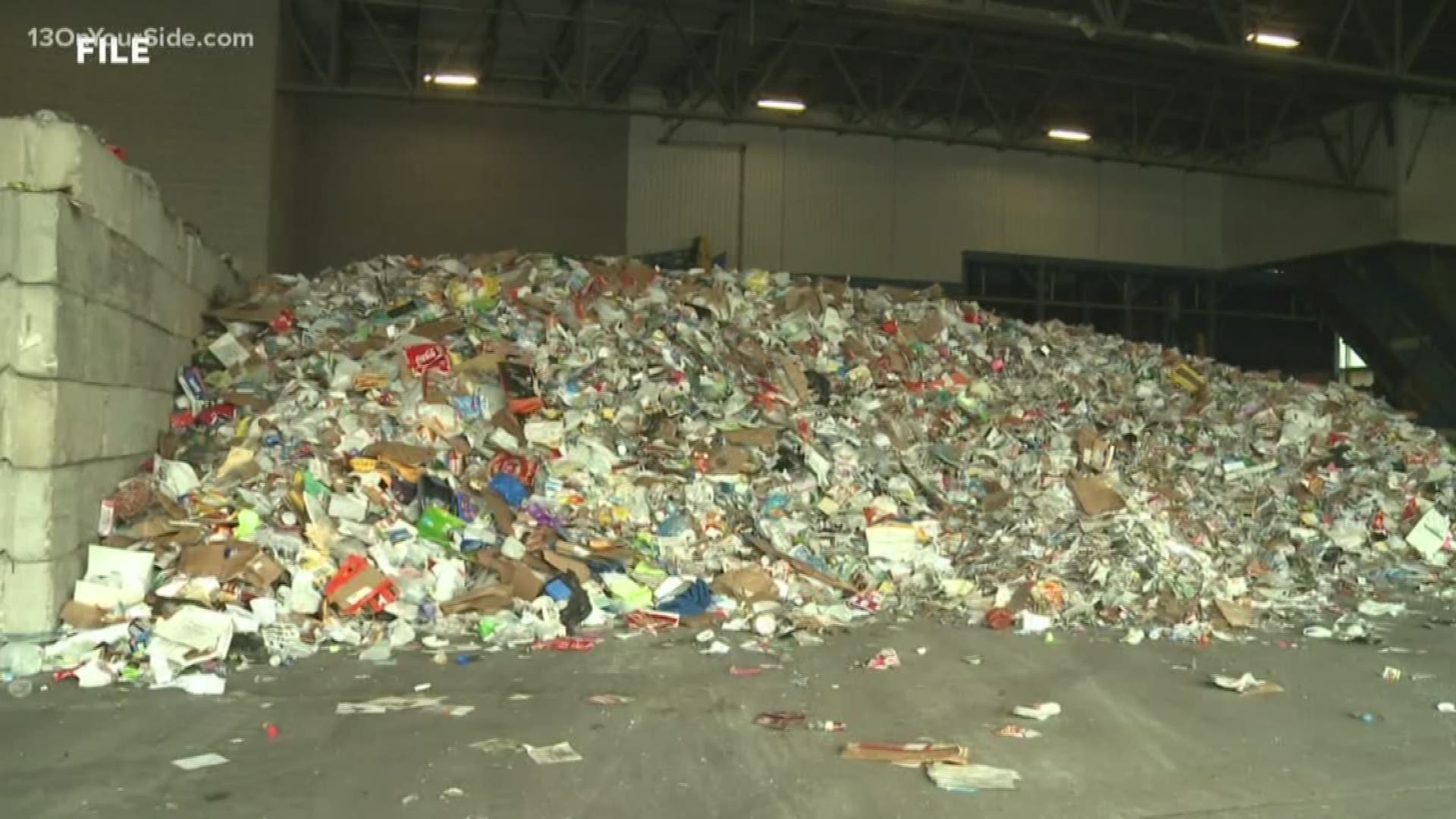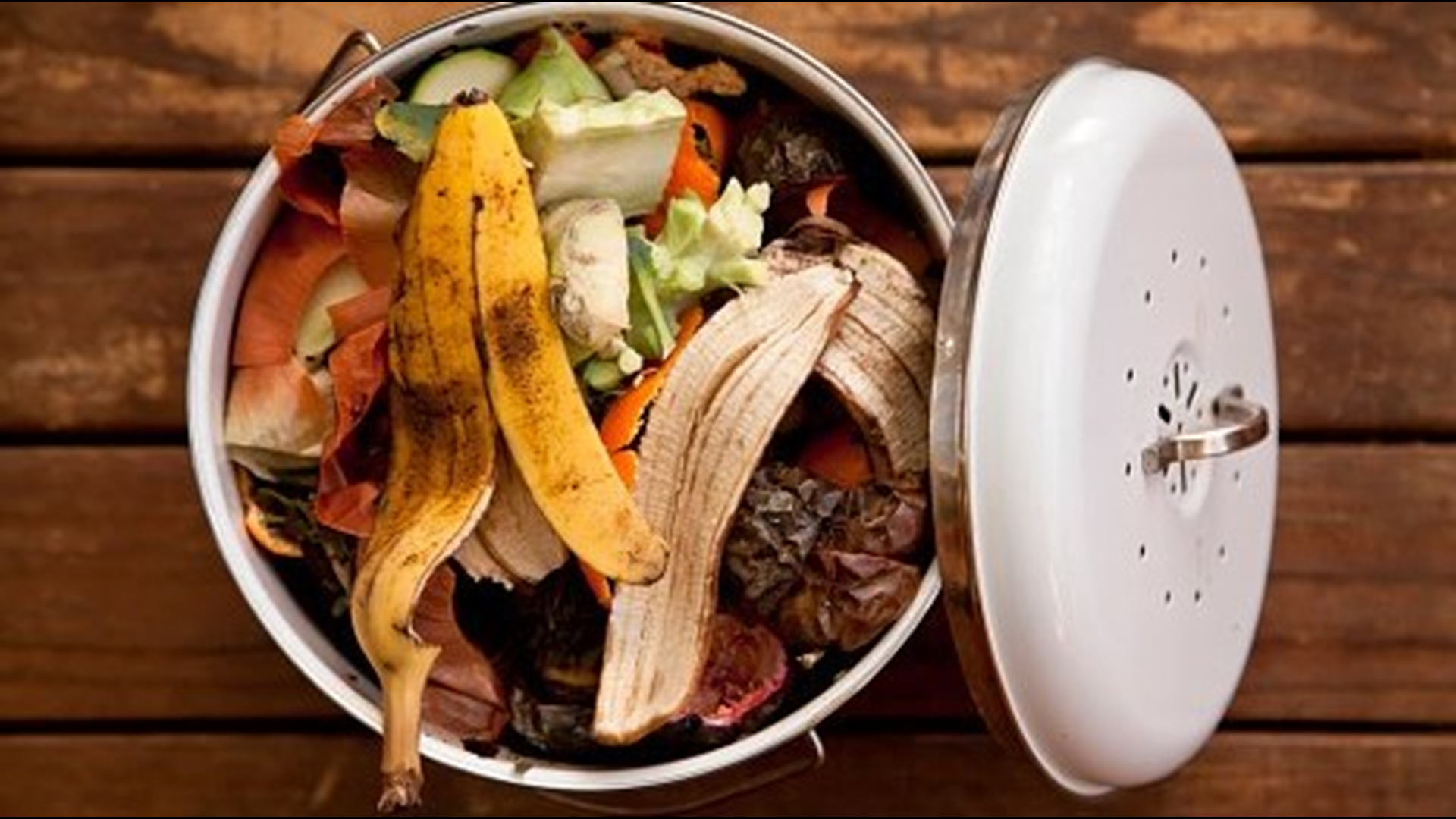ROCKFORD, Mich. — Many see the coming years as a race to save the planet. According to Footprint Network, humanity is using nature almost two times faster than Earth's resources can keep up. With movements like plastic straw boycotts and cloth-diaper revamps, people across the world are changing their lifestyles to combat the environmental crisis.
Among the most popular of emerging trends is living "waste-free" or with "zero waste." The movement has been around for years and is gaining more attention thanks to social media. According waste-free blogger Erin Augustine of Carbon Free Family, the term "waste-free" is a mindset more than a goal.
"Like absolute zero is unattainable. For me the mindset is recognizing that everything I bring into my life will eventually be waste and then managing for that," she explained.
Augustine and her family of four live in Rockford and recently committed to living zero-waste.
"About a year ago we realized we had the opportunity to go even further and align our daily activities more with our values...we said hey let’s try to live waste-free or zero-waste or with a specific focus on plastics, so eliminating single-use plastics," she recalled.
She says her and her husband, Robbie, started incorporating small changes and big changes alike into their everyday life and talking through their decisions with their two young daughters.
RELATED:
"When we get in the car, my children remind me of the impact. Hazel will say mom, do we have to drive, because you know we’re harming the polar bears. One of the things I love about children is they have "A" plus "B" equals "C." It's a very simple narrative in her head. When we drive we’re hurting polar bears," Augustine said.
Check out Kylie's instagram page where she went waste-free for one week leading up to this story.
How did they do it?
A big change the family committed to was driving one car. With Augustine working outside of the home and her husband Robbie working inside, they said this is a sustainable change they can commit to.
One car
Each family member has a bike to get around, and for longer trips or hauls, they use a solar-powered bike.

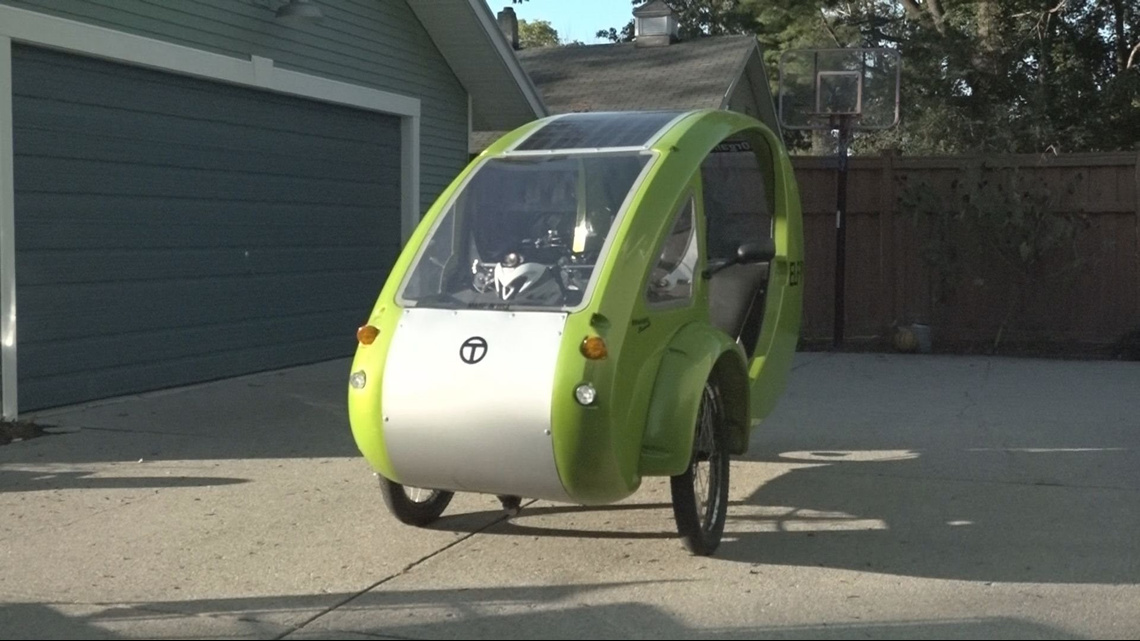
Reduce plastic
A smaller change was switching reusable items in for single-use plastics. The family of four sport material carry bags at stores and opt for glass mason jars and containers to replace ziploc bags that are typically used once and tossed away.

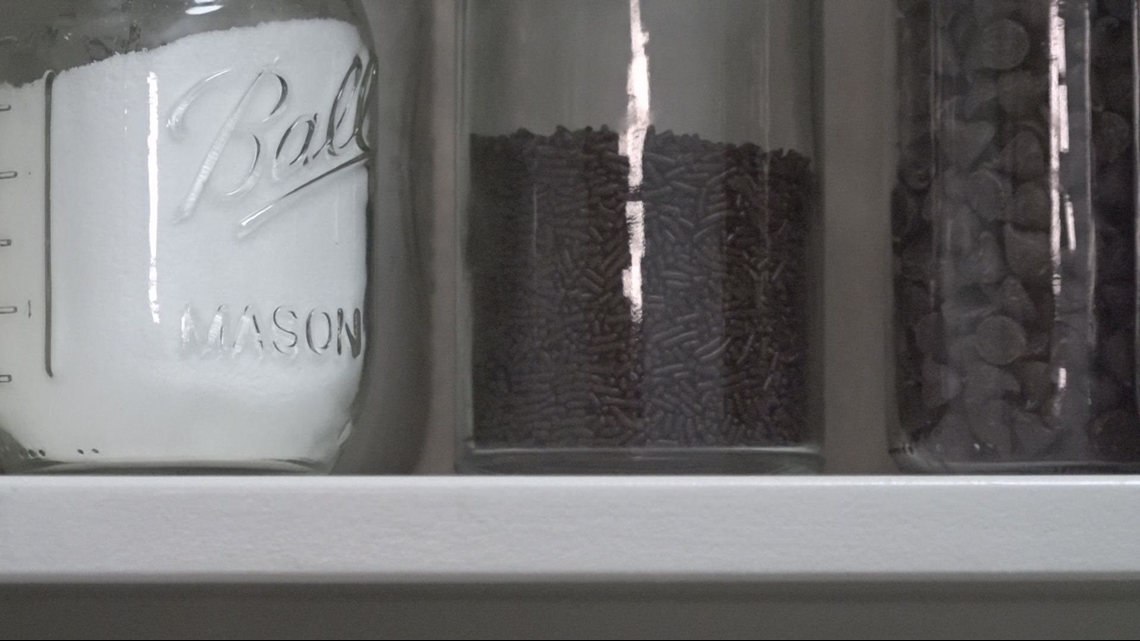
Conserve power
While they have a washer and dryer inside their home, they choose to dry their clothes on a clothesline on their back porch to conserve power. The clothes they hang are often bought used or are repaired over time to conserve the time, materials and energy it takes to create new items.

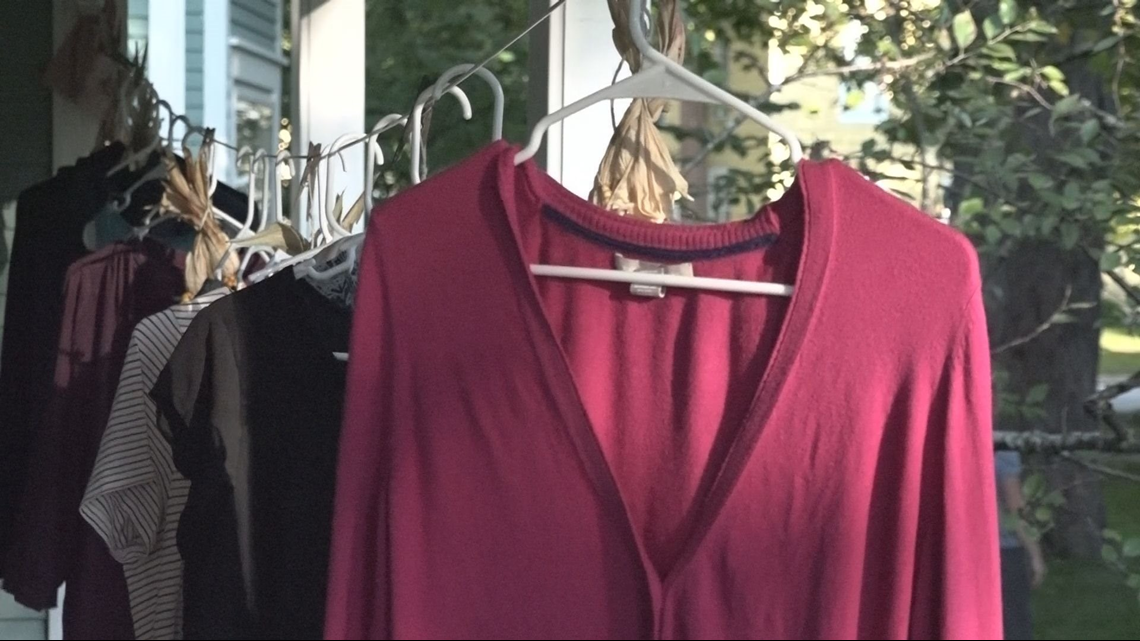
Naked produce
Augustine said grocery shopping has been the most challenging thing to master, because most food in stores are packaged. She said fruits and vegetables are easier to purchase, because they are "naked produce," meaning that they don't need to be pre-packaged. The family stocks up on naked produce at farmer's markets where they can put items straight into their reusable bags, and often freeze seasonal items, like blueberries, to use year-round.
For items that are hard to find non-packaged in the store, the Augustines teamed up with local businesses like the Rockford Cheese Shop and Cinco De Mayo to get their goods. The businesses put their products right into the family's glass containers when they pay. Augustine said sometimes she has to use some single-use paper products, like when she gets her tortilla chips, but says it's a good hand-off, as paper can go into her compost.

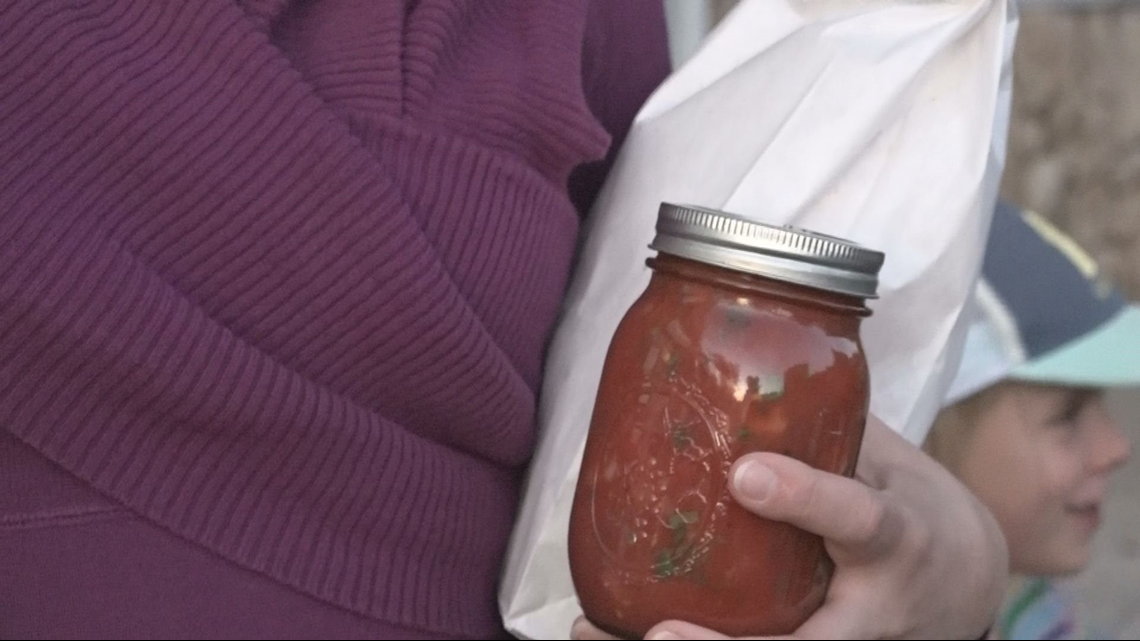
RELATED:
"We’re building community, while we’re going zero waste. So I have a significantly better relationship with my cheese shop and my cheese lady," she laughed.
However, some items, like meat, are difficult to find a substitution for. Augustine said her and her family have tried going to the deli with containers, but the price of buying meat by pound can get expensive. They now buy their meat in bulk and preserve it in their freezer to produce less plastic waste than buying smaller portions each week. While the meat is packaged in single-use plastic, they say it's a good alternative that they can afford.
Package free
When it comes to shopping for toiletries, the family has made big strides in substituting products with single-use containers with non-packaged, or recyclable items. They use non-packaged bar deodorant and shampoo as well as toothpaste tablets in a recyclable container with a bamboo toothbrush. Augustine said she doesn't wear a lot of makeup, so her substitutions are fairly easy, buying glass-bottled foundation because it is more easily recycled.

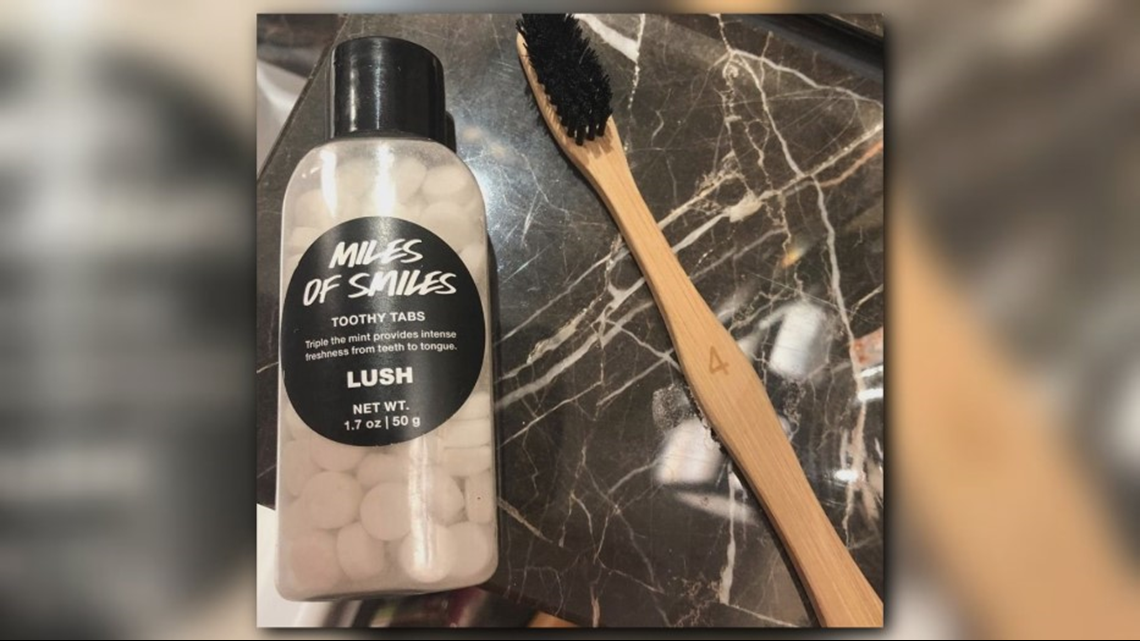
Recycle
In addition to recycling, the family throws eligible food scraps in their compost container behind their garage. To learn more about starting a compost of your own, click here.
For more information on living a waste-free life, follow Augustine's blog, Carbon Free Family.
Going waste-free for a week:
Related Video:
►Make it easy to keep up to date with more stories like this. Download the 13 ON YOUR SIDE app now.
Have a news tip? Email news@13onyourside.com, visit our Facebook page or Twitter. Subscribe to our YouTube channel.

